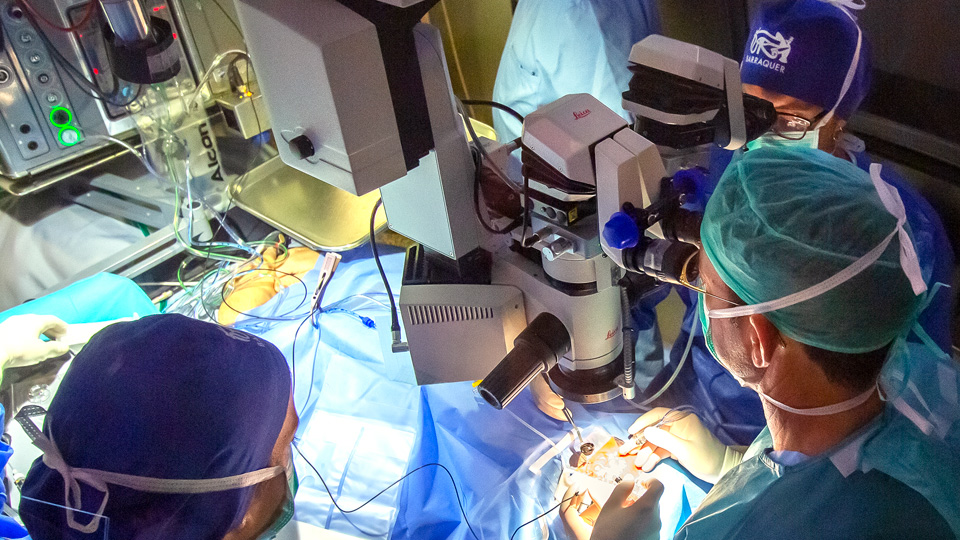Learn about refractive errors: myopia, hypermetropia, astigmatism and presbyopia
16/01/2026

11/02/2021
1. What is retinal detachment (RD)?
RD is a serious eye disease that involves physical separation and accumulation of fluid between the internal retina (neurosensory retina) and the external retina (pigmentary epithelium), which would be in close contact under normal circumstances.
2. Are there different forms of RD?
There are three basic types: rhegmatogenous retinal detachment caused by one or more ruptures in the retina (this is the most common type); tractional retinal detachment caused by the fibrous tissues that pull away from the retina (common in the diabetic retinopathy); and exudative retinal detachment, which is due to a leakage of fluid below the retina in tumoral diseases and severe inflammation.
3. Are there any predisposing factors to RD?
RD most commonly appears spontaneously, however, there are indeed factors that predispose a person to suffering from this disease: acute detachment of the vitreous, degenerative lesions on the peripheral retina, myopia, contusive trauma, complications during cataract surgery, advanced forms of diabetic retinopathy, inflammation of the uvea, tumours in the retina or choroid (melanoma, vascular tumours) and even a family history of RD.
4. What are the warning signs compatible with a RD diagnosis?
The sudden appearance of flashes of light (photopsia) and/or floaters (myodesopsias) followed by the appearance of a fixed dark spot that gradually invades the visual field, are the clinical signs most characteristic of a RD. If the diseases continues to advance, it may end up compromising the central region of the retina, which would be manifested by distorted images and a great loss of visual acuity.
5. How is RD treated?
There are various alternatives based on the type and spread of the RD. When there are tears or traction on the retina, we use surgical techniques with very specialised instruments. We perform surgery with local anaesthesia and sedation, and we use the laser to block the ruptures. We treat exudative RDs with strong anti-inflammatory drugs or even with radiotherapy if there is an associated tumoral lesion. More than 95% of RD cases develop favourably if an early and suitable diagnosis is made and treatment is provided.
Doctor Javier Elizalde, ophthalmologist of the Barraquer Ophthalmology Center
People with diabetes are predisposed to suffer complications in their eye health such as diabetic retinopathy or macular edema. These conditions may not present symptoms initially and cause irreversible damage, but they can be prevented with ophthalmological check-ups.